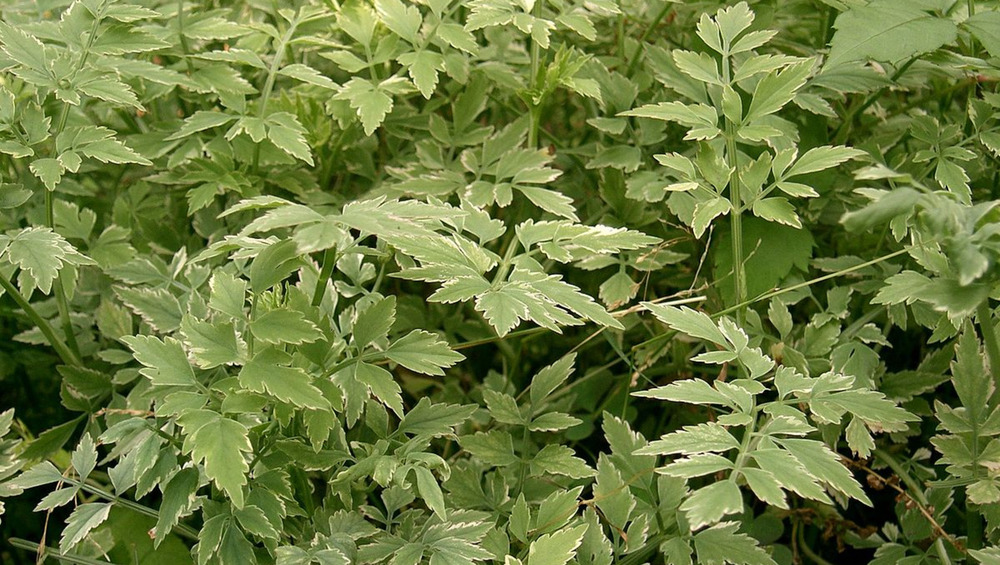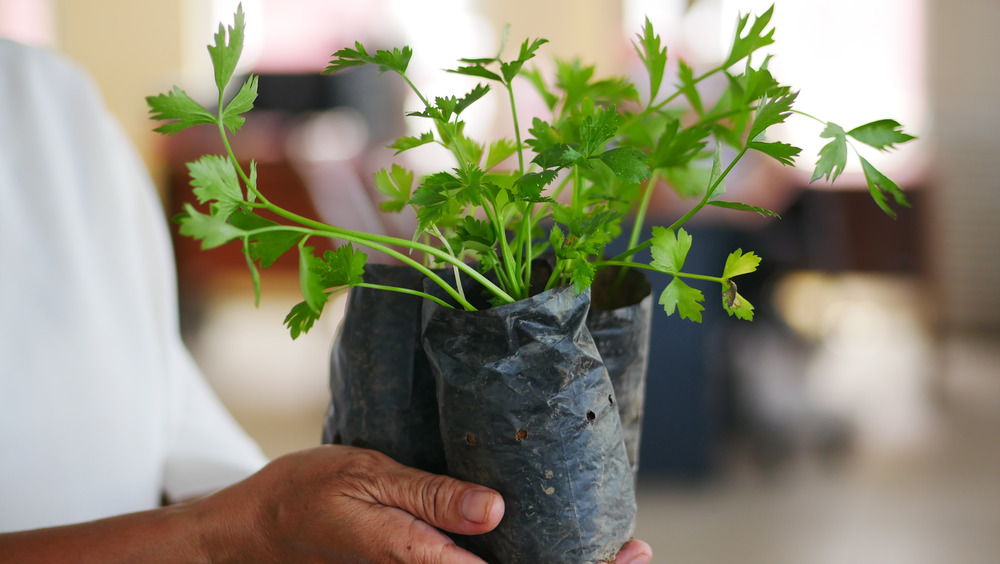What Is Minari And What Does It Taste Like?
Minari has been a staple ingredient in Asia for many years. The plant is native to East Asia and is frequently added to dishes in many countries, including India, China, Japan, Malaysia, Thailand, and South Korea. As such, it is known in different places by many different names, depending on its country of origin. The herb is commonly referred to as Chinese celery, Indian pennywort, Japanese parsley, water celery, and, of course, minari. Per Slate, the word "minari" actually comes from two different Korean words: "mi," which means "water," and "nari," which translates to "vegetable." The bright green perennial herb has been described as having a bitter, peppery, and slightly grassy taste.
Minari is a popular ingredient, not only for the distinctive flavor it adds to many dishes but also for its many health benefits. For years, minari has been believed to have detoxifying effects and was thought to help lower blood pressure and reduce inflammation. It has been prescribed to help cure a number of minor ailments, including hives, fever, and dehydration. It is even added to a spicy fish stew known as maeuntang that doubles as a hangover cure in South Korea.
Minari is relatively easy to grow
Thanks to its short growing season, the plant can thrive in many environments, but it has not achieved wide popularity in much of the United States. While it can be found in some specialty Asian stores in bigger cities, or in water garden supply stores under the name "water celery," the herb has still not reached a large mainstream audience stateside and is rarely found in American grocery stores.
Minari grows relatively quickly, especially in summer, so rather than purchasing it, many Korean immigrants who want to retain the flavor of their home country simply grow the plant themselves in their own backyards. According to the Los Angeles Times, in some places with a large Korean population, such as the Elysian Valley neighborhood of Los Angeles, minari is grown in large community plots. "We like other plants, but this is what we started off with. It cleans the liver," Los Angeles gardener Woo Chul Chong told the Los Angeles Times.

